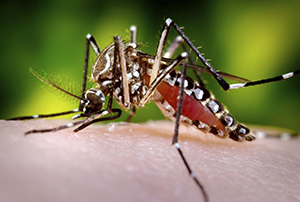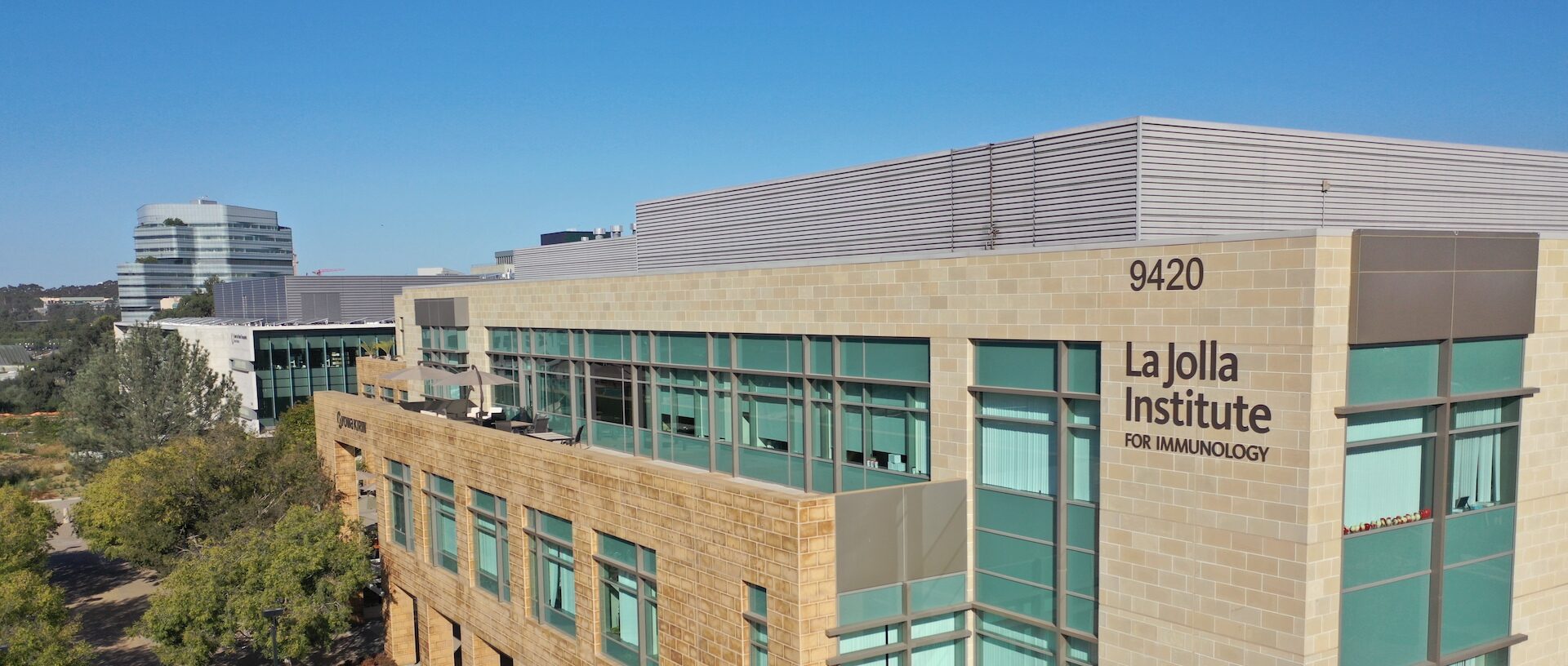LA JOLLA, CA—Researchers at the La Jolla Institute (LJI) for Allergy and Immunology identified a unique subset of helper T cells that appears to play an important protective role in controlling dengue virus infections. The findings, published in the Aug 4, 2015, issue of the Proceedings of the National Academy of Sciences, support the notion that a successful dengue vaccine needs to induce a strong T cell response in addition to high antibody titers, the yardstick against which the promise of vaccine candidates has traditionally been measured.
“The study is an example of the broad strategy that the LJI has put in place to facilitate vaccine development and combat disease,” says the study’s senior author Professor Alessandro Sette, Dr. Biol.Sci. “By defining the specific type of immune responses of people who became largely naturally immune to the disease, we can understand what type of responses we need to achieve for a vaccine to be successful.”
Over the past few decades, dengue-carrying mosquitoes have rapidly expanded beyond their established territories in South East Asia and Latin America and recently reached Southern Europe and the continental United States, leaving almost half the world’s population at risk of infection and causing an estimated 390 million infections each year. Without an approved vaccine to stem the increasing tide of dengue infections, dengue fever is now the world’s most common mosquito-borne disease.

Dengue is caused by four closely related dengue viruses called serotypes. In most cases, infection causes a mild, flu-like illness, but for reasons not yet fully understood, in a small number of cases, the disease turns into the life-threatening dengue hemorrhagic fever, characterized by bleeding and dangerously low blood pressure, which can send the victim into shock.
“One risk factor for severe disease is re-infection with a different serotype, but we still don’t know why only a subset of people infected with dengue progresses to severe disease,” says Daniela Weiskopf, Ph.D., an instructor at the LJI and the study’s lead author. “In almost all areas where dengue virus is endemic, all four serotypes are circulating, and that’s why the question has become so pressing.”
So urgent, in fact, that a few years ago the National Institutes of Health (NIH) stepped up its focus on dengue research and started to contract with experts nationwide to gain a better understanding of how the virus infects cells and causes disease. As part of the dengue initiative, Sette, an internationally recognized vaccine expert, was awarded a long-running contract—now in its 6th year—to conduct a comprehensive analysis of the T cell response to dengue infection.
An earlier part of the study, also spearheaded by Weiskopf, revealed that certain variants of cell surface molecules known as human leukocyte antigens (HLA) are linked to a weaker response by CD8+ T cells. This subset of T cells, more commonly known as cytotoxic or killer T cells, are in charge of killing virus-infected cells.
The current study focused on the role of helper T cells, another subset of T cells also known as CD4+ T cells, in determining the severity of disease. CD4+ T cells stimulate B cells to produce antibodies and activate cytotoxic T cells so they can eliminate infected target cells, thus playing a crucial role in coordinating a swift and potent immune response.
Weiskopf and her colleagues specifically wanted to know how different HLA variants shaped the helper T cell response after natural infection with dengue virus. When they analyzed the blood of donors from Sri Lanka, where tens of thousands people contract dengue each year, they discovered a surprising phenomenon.
“Donors who had been exposed to dengue once responded exactly as we would expect, with all the dengue-specific response coming from the helper T cell memory pool,” said Weiskopf. However, when the researchers repeated the same experiment with donors who had been exposed to dengue multiple times, they observed a drastic shift. “All of a sudden the CD4+ T cell response was dominated by helper T cells that had acquired cytotoxic properties usually reserved for CD8+ or killer T cells,” Weiskopf explained.
This rare breed of helper T cells that can also kill had been previously described in chronic viral infections, such as HIV, but not after acute viral infections such as dengue.
Further experiments revealed that a strong cytotoxic CD4+ T cell response was associated with an HLA variant that had been previously shown to confer protection against serious disease. “Knowing which specific HLA molecules protect people from severe dengue disease or make them susceptible to developing hemorrhagic fever would allow us to identify those patients most at risk for severe disease and provide appropriate care,” says Weiskopf.
This work was supported by the National Institute of Allergy and infectious Diseases, part of the NIH, Contracts HHSN272200900042C and HHSN27220140045C.
Full citation:
Dengue virus infection elicits highly polarized CX3CR1+ cytotoxic CD4+ T cells associated with protective immunity. Daniela Weiskopf, Derek J. Bangs, John Sidney, Ravi V. Kolla, Aruna D. De Silva, Aravinda M. de Silva, Shane Crotty, Bjoern Peters, and Alessandro Sette. PNAS 2015 112 (31); doi:10.1073/pnas.
ABOUT LA JOLLA INSTITUTE
La Jolla Institute for Immunology is dedicated to understanding the intricacies and power of the immune system so that we may apply that knowledge to promote human health and prevent a wide range of diseases. Since its founding in 1988 as an independent, nonprofit research organization, the Institute has made numerous advances leading towards its goal: life without disease®.


